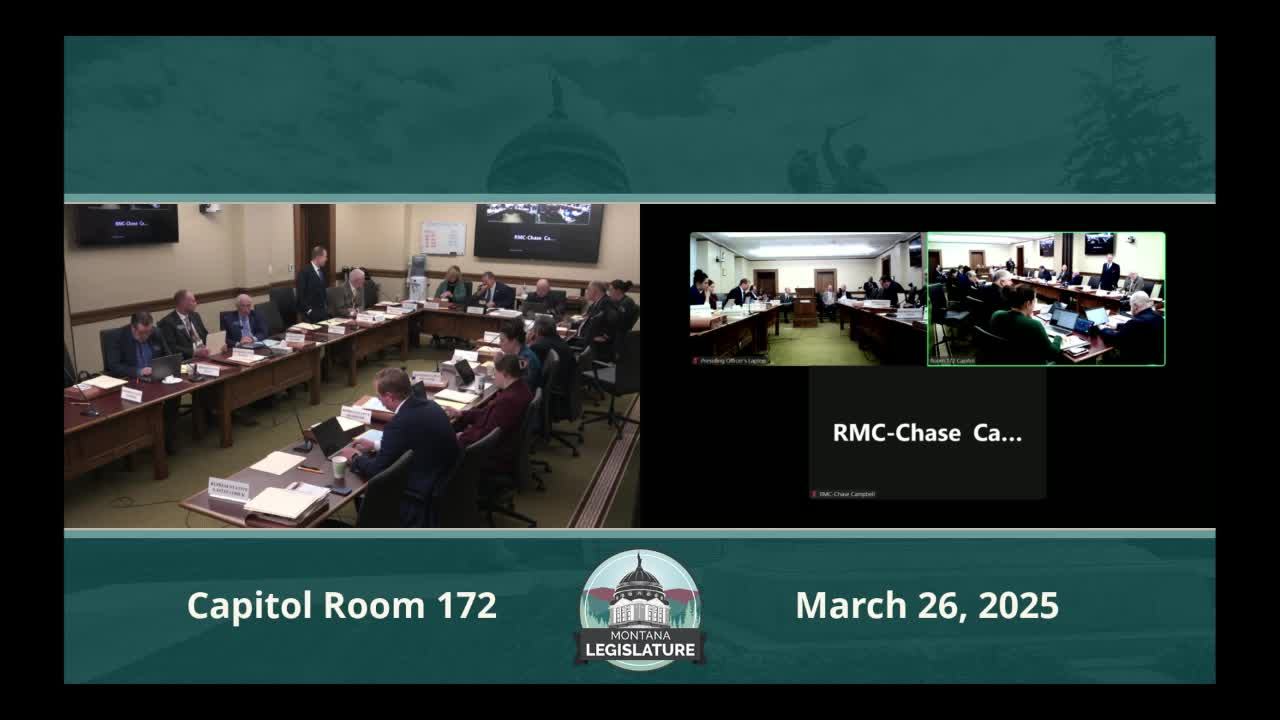Committee hears bill to move emergency care provider licensing from medical board to Department of Labor program
Get AI-powered insights, summaries, and transcripts
Subscribe
Summary
Senate Bill 518, introduced by Sen. Derek Harvey, would move licensing for emergency care providers (EMTs and paramedics) out from under the Board of Medical Examiners and into a program run by the Montana Department of Labor and Industry.
Senate Bill 518, introduced by Sen. Derek Harvey, would remove emergency care providers (ECPs) — including EMTs and paramedics — from under the Board of Medical Examiners and make them a licensure program within the Montana Department of Labor and Industry (DLI). The House Business and Labor Committee heard the bill and heard both supporters and opponents describe how the change would affect training, protocol changes and statewide medical oversight.
Why it matters: Committee members were told the move would let DLI implement licensing rules and program changes more quickly and reduce costs for licensees, a point proponents said matters especially in rural Montana. Opponents — including volunteer EMS managers and emergency physicians — said the change risks weakening physician-level oversight for high-risk, out‑of‑hospital care and asked for explicit statewide medical leadership to be preserved.
Sen. Derek Harvey (Senate District 37) told the committee the bill “brings efficient implementation of procedures and devices into our protocols” and said moving ECP licensure to DLI would “help to keep our license rates affordable for all emergency care providers across the state” and aid recruitment and retention.
Joel Gaertig, a 15‑year paramedic and captain with the Missoula Fire Department speaking for Montana Professional Firefighters, said EMTs and paramedics operate in uncontrolled environments that other medical professionals may not understand and that DLI oversight would let the profession “tailor emergency medical care for emergency medical care providers.”
Sarah Swanson, commissioner in charge of professional occupational licensure at DLI, described the department’s view that the change would not remove required physician medical directors or DPHHS’s role licensing facilities. “Functionally for a licensee, nothing will change,” Swanson said, adding DLI already maintains a physician medical director on staff and that moving ECPs to a program would allow DLI to respond more quickly to training and certification issues, especially in rural areas.
Opponents pressed for more explicit medical oversight. Sam Alpert, an EMS agency manager and chair of the Lewis and Clark Rural Fire Council’s EMS committee, said volunteers make up the largest group of providers in the state and worry the shift would replace a deliberative board with a single administrative authority whose processes and experts are not yet defined. “Changing the system will require every agency manager and every licensee to learn how to do things,” Alpert said, and volunteers may lack time to track faster rule changes.
Dr. John Gildea, a residency‑trained emergency physician and medical director for multiple EMS agencies, urged the committee to preserve a state EMS medical director with emergency‑medicine training. Gildea argued that many out‑of‑hospital care decisions require emergency‑medicine expertise and that a statutory role for an EMS medical director would provide consistent access to that expertise.
Other opponents, including Sarah Monroe, a hospital‑based paramedic and service manager, warned the bill leaves unanswered questions about who would approve special licensing requests and whether DLI will have adequate staffing or funding to take on the work now handled through the board and its rulemaking process. “We can’t afford to gamble with patient care and provider safety while it is sorted out,” Monroe said.
DLI’s chief legal counsel Quentin O’Connor explained DLI already drafts and implements administrative rules and that program rulemaking would follow the same MAPA processes used now. He said DLI’s experience moving other professions from board oversight to programs shows the substance of rules would largely be transferred rather than reinvented, and that department staff — not volunteer board members — do most day‑to‑day license administration today.
Closing, Sen. Harvey urged a “strong due pass,” and said Representative Etchart had agreed to carry the bill if the committee advances it. The committee took no formal vote during the hearing.
Next steps: The bill remains at the hearing stage; supporters and opponents asked the committee to either move it forward with assurances about physician involvement or to amend the measure to create a statutory role for ongoing emergency physician‑level involvement.
